Earlier this month, we profiled gay and bisexual men for their reasons for taking PrEP, a daily pill that can reduce HIV transmission by up to 99 percent if taken daily as prescribed. While many readers expressed gratitude for giving a spotlight to PrEP, many also pointed out the lack of voices of men of color, who statistically are at greater risk of contracting HIV.
As Mathew Rodriguez pointed out in an op-ed piece published concurrently with this article, "PrEP will do very little to end the AIDS epidemic until it gets into the hands of young gay men of color," who "are put at risk by poverty, lack of access to housing, lack of competent medical care, racism, heterosexism, homophobia, and stigma." And while PrEP is not an panacea for these ills, a conversation about options and education is an essential place to start.
To this end, The Advocate reached out to gay and bi men of color who use PrEP to hear their stories of why they began treatment, the stigma they may have encountered, the side effects they experienced, and advice for those on the fence about it. Read their stories in their own words.
 Matthew Murguia
Matthew Murguia
54
Kensington, Maryland
Federal employee
When did you decide to start taking PrEP, and what prompted the decision?
I started in November 2013. I had been involved in HIV-related work for nearly 18 years, and after reading some of the published literature on the efficacy of PrEP, I decided that if I could reduce my risk for infection, I owed it to myself to try. It was a no-brainier for me to start on PrEP.
How has PrEP changed your relationship or dating life?
Not at all. I was single when I started PrEP and am still single. I don't always bring it up, but I am not hesitant to discuss it.
What side effects have you experienced, if any? If so, how have they affected your daily life?
For the first few weeks, I had some stomach issues and got tired right after work. These side effects have now disappeared, and I notice nothing different than when I take my daily vitamin or aspirin. I've not yet missed a dose, mainly because I have made taking my pill part of my morning routine.
Have you encountered stigma? If so, how have you addressed it?
Most of my friends are involved in HIV/AIDS policy work or are gay, so they understand how HIV has affected our community. Other than some initial teasing to counteract the negativity from the naysayers, they have all been completely supportive. It is clear to them that PrEP is another tool in the arsenal against HIV, and they support my decision to add that tool to my risk-reduction tool box. With folks I don't know well, most have still not heard of it and are skeptical. I usually explain it, and then direct them to the web to learn more. What surprises me most is the lack of a visible effort on the part of educators and doctors to discuss PrEP as an HIV-prevention method.
What advice would you have for those who are on the fence about PrEP?
Look at yourself and look at your life. If you are engaging in activity that puts you at risk for HIV infection, then you should seriously consider PrEP as a means to greatly reduce your risk of infection. Talk to your health care provider; if s/he is not comfortable talking about PrEP, find a doctor that is. Sex shouldn't be scary; PrEP can greatly reduce that fear and give you more control over your life.
 Mathew Rodriguez
Mathew Rodriguez
25
Queens, New York
Community Editor, TheBody.com (@mathewrodriguez on Twitter)
When did you decide to start taking PrEP, and what prompted the decision?
I have been on PrEP since May of 2014. I decided to take PrEP because I was in a non-monogamous relationship where we did not use condoms. Since then, the relationship has ended, and I'm still on PrEP.
How has PrEP changed your relationship or dating life?
PrEP has not significantly changed my relationship or dating life. I definitely approach sex differently, but it's had a greater effect on the way I approach sex with negative men than with HIV-positive men. I know a lot of people who don't know exactly when they last got tested, and that can sometimes be worrying, but knowing that I have PrEP has been better for me.
What side effects have you experienced, if any? If so, how have they affected your daily life?
I happened to already be on meds when I started PrEP -- I'm a diabetic. Since my time on Truvada, I have had no side effects.
Have you encountered stigma? If so, how have you addressed it?
I have encountered a lot of stigma, especially from people on dating sites and apps. Some people have confronted me and asked me if I know all the science behind PrEP. The funny thing is, I really do, because I'm a journalist who works in HIV. However, I'd like to see another medication where people expect you to know every single side effect and the results of every single trial before you take it. It's a tad much. I've also been called every sex-negative, slut-shaming name in the book. I've just kept it moving and thanked them for sharing their views. In reality, a lot of what people are saying about PrEP probably has more to do with deep-seated shame and internalized stigma than anything else, and I'm not going to yell at anyone for that.
What advice would you have for those who are on the fence about PrEP?
For those who are on the fence about PrEP, I'd advise them to consider whether a daily medication is the best prevention method for them. I think PrEP is useful, but there are people for whom it may not be the best option, so it's really a "Know thyself" situation. But, if it is an option you want to pursue, know that you must be the best advocate for your own health, and there may be a lot of obstacles in your way -- fussy doctors, insurance red tape, pharmacy problems. Be ready to combat them, and if you need help, don't hesitate to reach out to someone.
 Devin Barrington-Ward
Devin Barrington-Ward
24
Washington, D.C.
Health Equity Professional
When did you decide to start taking PrEP, and what prompted the decision?
I started taking PrEP earlier this year, and my decision was prompted by own advocacy and policy work around HIV prevention, with special attention given to how our prevention policies affect the lives of black gay men. I figured if I was going to advocate for additional options for the prevention of HIV among black gay men, and I am black gay man who is negative, that I should explore this option myself. At this point in my life, I know more black gay men who are HIV-positive than those who are negative, and I never want someone's HIV status to serve as a barrier in dating, sexual experiences, or long-term relationships. Although condoms provide protection, I realize that using condoms 100 percent of the time may not always be an achievable goal. Thus, PrEP became a viable option for me and other Black gay men I know.
How has PrEP changed your relationship or dating life?
Despite having never decided to not date someone because of his status, PrEP has most certainly made dating in my community much easier. So many times, HIV-positive people feel they share the sole burden of keeping those they are dating or having causal sex with negative, and that should have never been the case. Now, PrEP can serve as a tool to help share the responsibility of not transmitting the virus.
What side effects have you experienced, if any? If so, how have they affected your daily life?
In the beginning stages of taking PrEP, I experienced a few side effects, including diarrhea, nausea, and headaches. However, after a few weeks, those side effects subsided.
Have you encountered stigma? If so, how have you addressed it?
Luckily, I have not encountered a great deal of stigma. Rather than experiencing stigma, I have encountered a lot of people who have no clue what PrEP is. It is more important to address the lack of knowledge around PrEP than its stigma.
What advice would you have for those who are on the fence about PrEP?
My advice is twofold. For advocates or those working in HIV prevention who are on the fence about supporting PrEP or have already taken a firm stance against PrEP, I would encourage them to revise how they look at the subject. This discourse should not be about being anti-PrEP or pro-PrEP, this conversation should be about empowering people to make choices about their sexual health and to prevent themselves from contracting HIV outside of using a condom as their sole means of protection. PrEP is merely a tool in our prevention toolbox, and we should be empowering people with the facts about PrEP, not stigmatizing or shaming people for wanting another prevention option outside of condoms. And to those who are wrestling about whether or not PrEP should be an option for them personally, I would encourage them to ignore the opinionated banter and immerse themselves in the facts. Websites like PrEPwatch.org or the National Minority AIDS Council's PrEPare for Life campaign are great resources to get the facts about PrEP.
 Noel Gordon
Noel Gordon
23
Washington, D.C.
LGBT rights activist
When did you decide to start taking PrEP, and what prompted the decision?
I decided to look into PrEP shortly after taking the Stigma Project's "Is PrEP Right for Me?" quiz. The quiz recommended I talk to my doctor about PrEP, because my answers put me within a high-risk category for contracting HIV. My doctor and I have a fantastic relationship, so I talked to him about it, and we both agreed that PrEP is the HIV prevention tool for me.
How has PrEP changed your relationship or dating life?
PrEP hasn't changed my relationship or dating life all that much. I still use condoms, test often, and talk to potential partners about their sexual history. The only difference is, I don't worry nearly as much about contracting HIV. It really is like a weight has been lifted off of my shoulders. I also use the fact that I'm on PrEP as a way to signal to men who are HIV-positive that their HIV status isn't a deal-breaker.
What side effects have you experienced, if any? If so, how have they affected your daily life?
I haven't experienced any side effects. Then again, my body takes well to medication in general.
Have you encountered stigma? If so, how have you addressed it?
I have had one or two people make assumptions about the type of sex I have because I use PrEP. But that sort of ignorance pales in comparison to the level of support I've received from friends and partners. Many of my friends have also begun using PrEP, which I'd like to attribute to my constant Facebook status updates. I'm glad people are talking about it, particularly young gay and bisexual men.
What advice would you have for those who are on the fence about PrEP?
Take the Stigma Project quiz. Find a knowledgeable health care provider in your area. Talk to them about PrEP. Cost is obviously a huge barrier, so I'd also encourage people -- insured and uninsured -- to check out Gilead's payment assistance programs.
 Jeremy Balli
Jeremy Balli
32
San Francisco
Office Administrator/Healthcare
When did you decide to start taking PrEP, and what prompted the decision?
I decided I wanted to get on PrEP five months ago after hooking up with other guys who were on PrEP or in a PrEP study here in San Francisco. After researching Truvada as PrEP, I decided it was something for me, because, "Why not?" I am young, I am healthy, and I have a voracious sexual appetite. The more I thought about PrEP, the more I found myself asking, "Do I need to live my life fearing that I will contract HIV? What does a world free from the fear of HIV look like?" From the time I understood that I was gay, the assumption was that HIV and AIDS are lurking around every corner, waiting for me at every sexual encounter. I needed to assume everyone I was going to sleep with possibly had HIV. I was immediately depressed that sex was going to be a roll of the dice, every time. I say this because even if I used condoms... what if they broke? Were expired? Manufacturer defects? I did not know then what I know and understand about "poz undetectability" and viral loads. The research was there, the risk was minimal (short-term), and I made up my mind to do this. I want PrEP!
How has PrEP changed your relationship or dating life?
My relationship has never been stronger, and I feel that PrEP has played a part in that. We are very sex-positive, and I think the idea of engaging sex outside of our relationship had been burdened with the fear of bringing HIV into it. With that fear out of the way, we have been able to focus on the emotional complexities in engaging our love and sex lives together. We have been able to become partners in the truest sense of the word, having alleviated a fear that most gay men do not realize is prevalent in our lives.
What side effects have you experienced, if any? If so, how have they affected your daily life?
I have not experienced any of the clinical side effects of Truvada. One unexpected side effect, however, is the sense of relief, and how it has affected other areas of my life. My confidence and level of clarity are at an all-time high. It's amazing how freeing it is to no longer focus on the embedded fear and stigma of your own sexuality and channel that energy into other parts of your life.
Have you encountered stigma? If so, how have you addressed it?
I have not encountered any negativity being open about PrEP. It is clear on all of my gay social media profiles (Grindr, Scruff, etc.) that I take it, and I invite others to ask me about it. I have received nothing but positive feedback so far. I have spoken with poz men who appreciate the way us PrEPsters/TruvadaWhores have approached them without stigma, and have been told how relieving it has been for them. This feeling of relief isn't just about me protecting myself. It's the shared relief of erasing all HIV-related stigma, and the relief of fearing you're infecting someone you care about. Gone!
Has your race or ethnicity factored into your decision to take PrEP?
Being a queer person of color, it is easier for men like me to become a statistic. Also, you are constantly trying to defy stereotypes and the limits set upon you by the ideas, perceptions, and sometimes, ignorance of others. I am Latino, I am gay, and that by itself is enough. Again, PrEP allows me to shift my focus from fear into something more productive, something beneficial to me.
What advice would you have for those who are on the fence about PrEP?
It is OK to be on the fence about a decision as important as getting on PrEP. But do not mistake caution as a sign that it is not the right thing for you to do. PrEP is more than enabling condomless sex. PrEP serves the same function that a condom does for gay men -- to stop the spread of HIV -- but it is more forgiving. When someone asks me, "Why PrEP?" I always answer with, "Why not?" Really think about it. If you believe PrEP is for you, then do everything you can to get on it. If your insurance tells you that it's going to cost you a fortune to do it, call back and keep asking, and asking, and asking until you hear what you want to hear. Systems are created to be labyrinthine and to dissuade you from your right to be sexual and healthy. You can be both. You deserve to navigate your sexuality with empowerment and safety. Love and sex do not have to be a battlefield, and it's time we accept that there is the possibility of a future where we're not on opposing sides (poz and neg), and we don't have to go into it wearing armor and the scars of past fears.
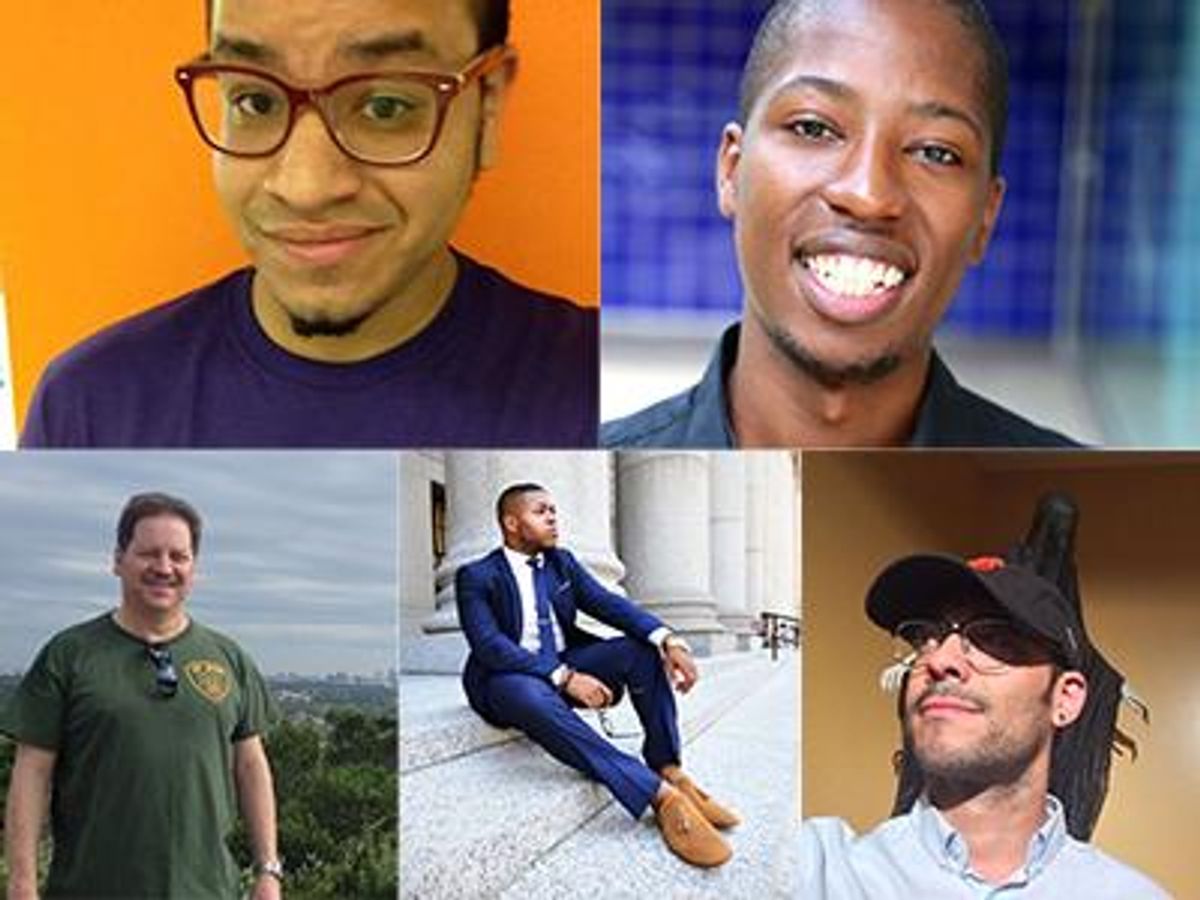

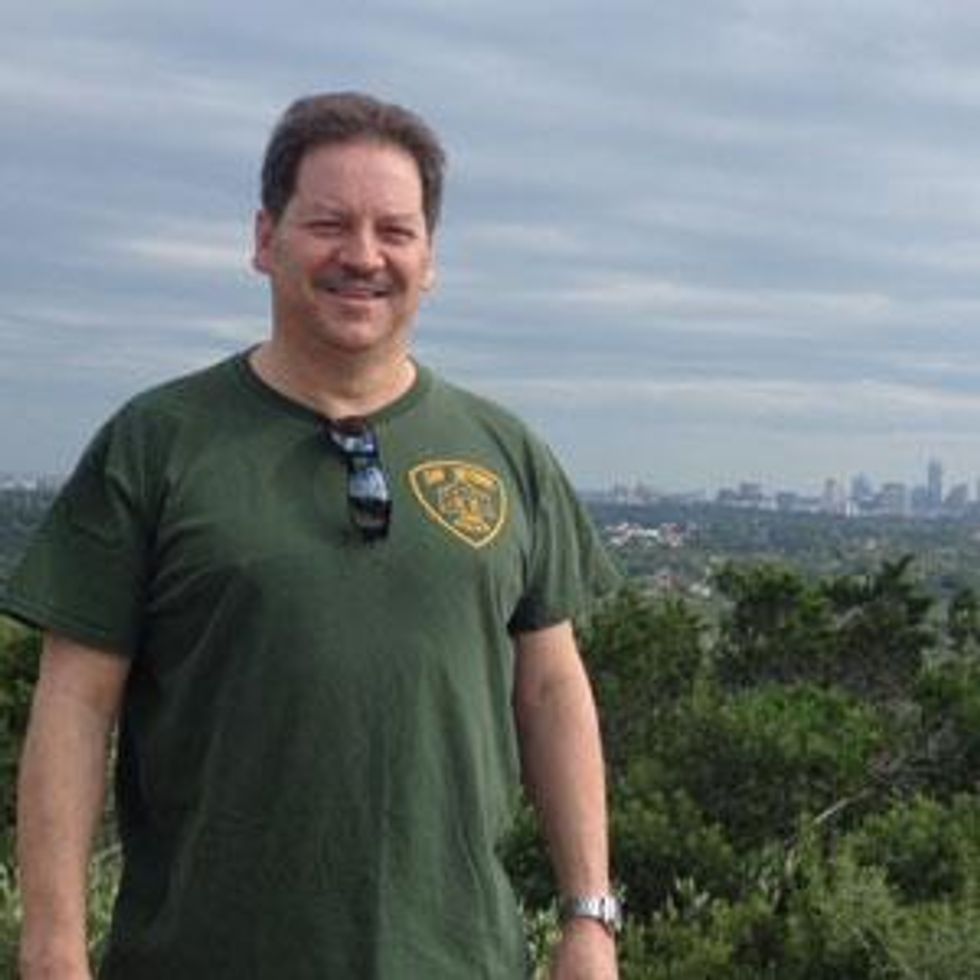 Matthew Murguia
Matthew Murguia Mathew Rodriguez
Mathew Rodriguez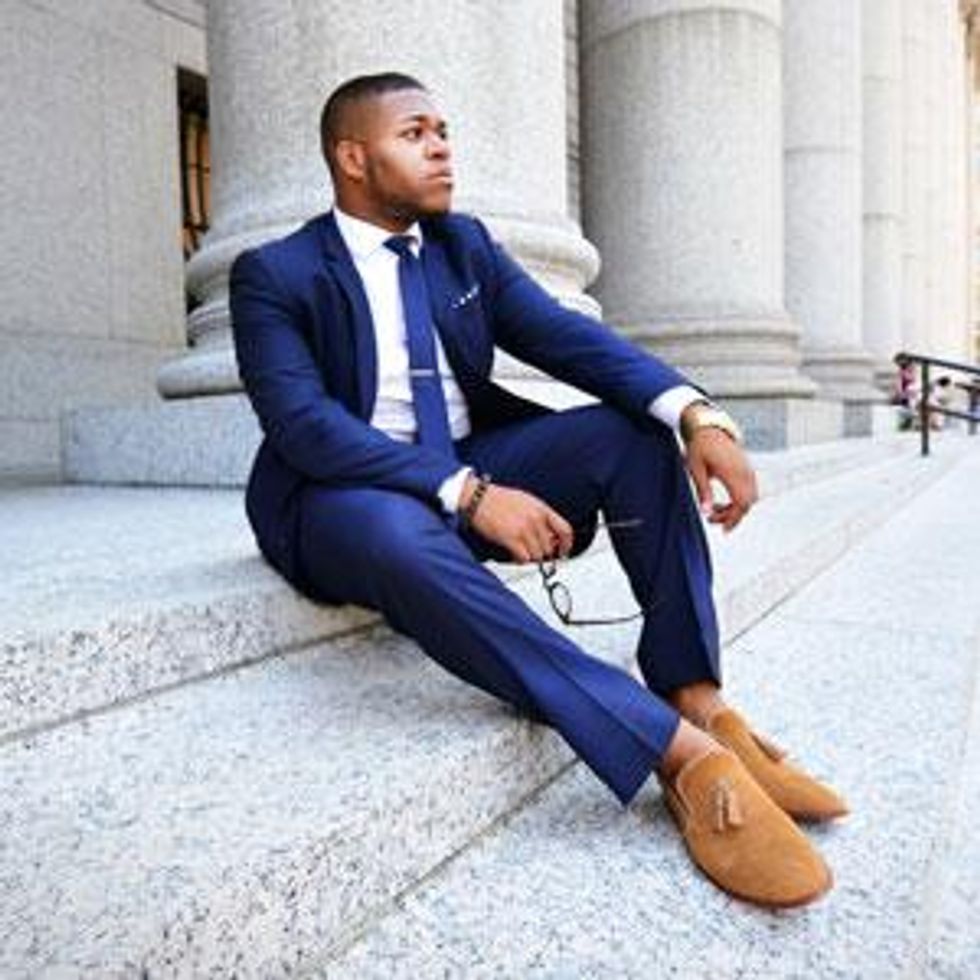 Devin Barrington-Ward
Devin Barrington-Ward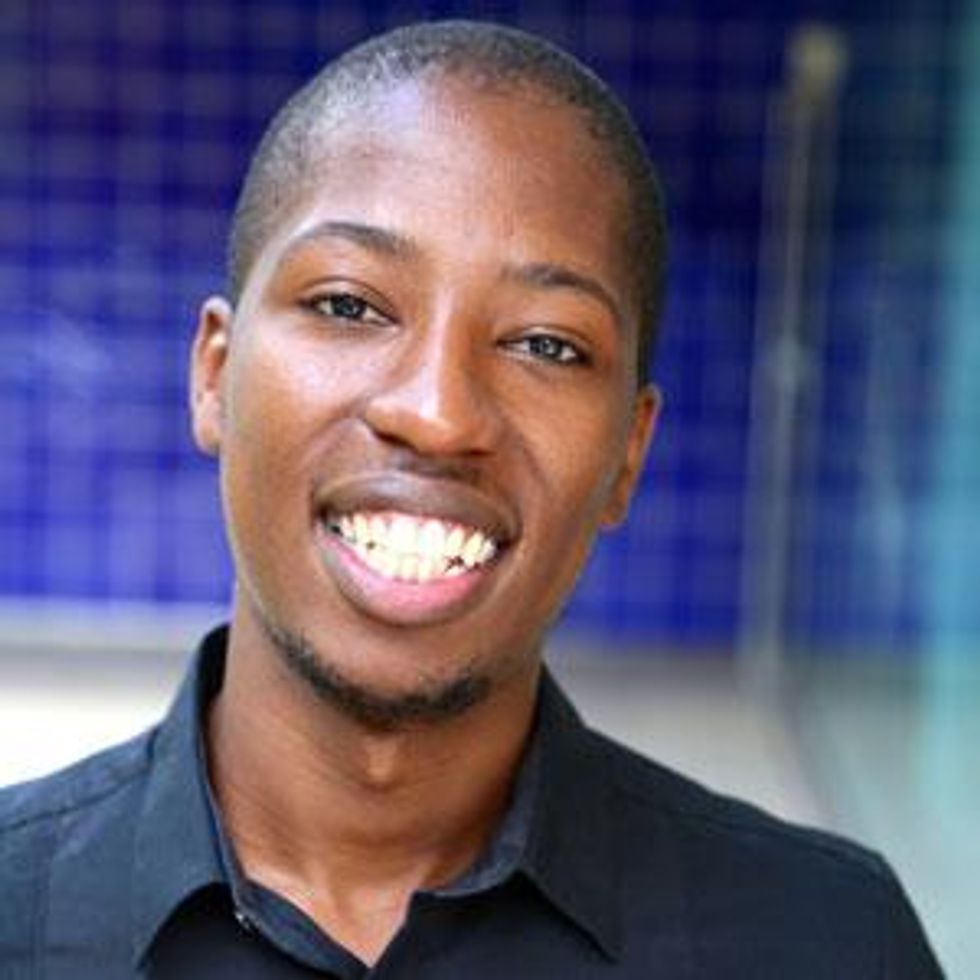 Noel Gordon
Noel Gordon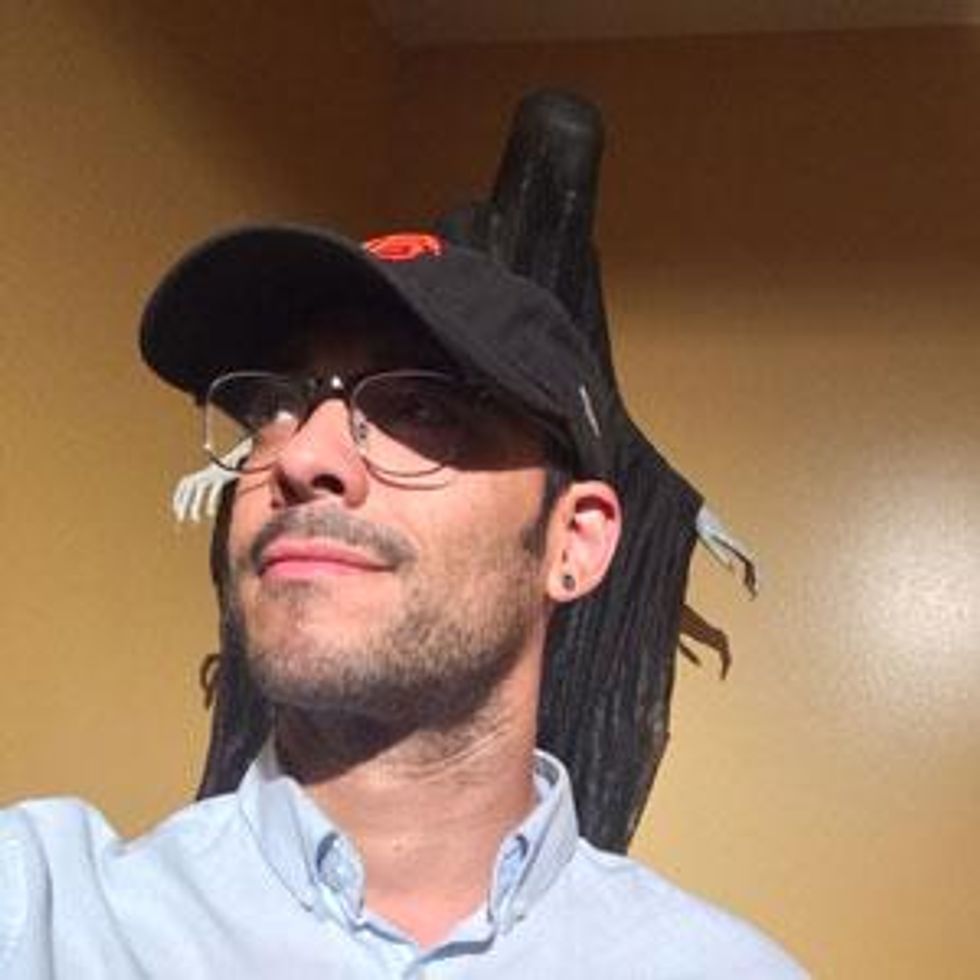 Jeremy Balli
Jeremy Balli















































































